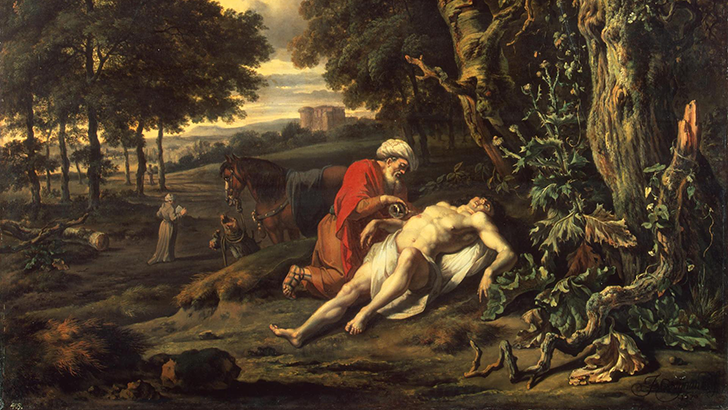Exhaustion Ethics?
When a nurse is exhausted by the ills on his hospital floor, we might diagnose the problem as compassion fatigue: A form of traumatic stress disorder affecting overwhelmed caregivers, compassion fatigue takes a physical, financial, vocational, emotional and spiritual toll.
Diagnosed among nurses and journalists, Nicholas Kristof has argued that compassion fatigue has become widespread because of pervasive news media coverage of crises around the world. I wonder what compassion fatigue looks like in academia?
In the medical field, compassion fatigue is exhaustion from caring. Perhaps a new, related diagnosis is needed for life in the twenty-first century: How do you describe someone who is exhausted, not from caring, but simply from living?
As the speed of living increases, the amount of sleep decreases, the connection to technological devices expands exponentially, the news unfolds twenty-four hours a day, and the financial world spins chaotically, we are faced not with a loss of compassion, but with utter exhaustion.
Exhaustion, oddly enough, is a culmination of excess. We have “too much” in our lives: too many expectations, too many possibilities, too many technological tools, too many choices, too many necessities crammed into the now.
In our world, that exhaustion is exacerbated by systems intended to make our lives, oddly, less exhausting: the tenure process, dashboards for grading, that ability to “work from home” (which truly exhausts the work/life balance), and students whose lives are all the more complicated by the complexities of our world today.
I’ve been thinking about exhaustion because I wonder how fatigue affects my ethics. What decisions do I make when weary?
In the famous experiment at Princeton Theological Seminary, John M. Darley and C. Daniel Batson tested groups of seminarians to see how they reacted to a coughing man slumped in a doorway. One group was told they were late; other students were told to take their time. Overall, 40% of the seminarians stopped to help. But of the group urged to hurry, only 10% offered aid. Of those who had a few moments to spare, more than 60% paused to help.
Certainly this is a story of hypocrisy: seminarians who are not “Samaritans.” But it also is a witness to the conditioned mindset of hurry. The psychologists realized that as the speed of life increases, the possibility for ethical choice becomes a rarity: a too-full life limits the capacity to care.
In the tenth chapter of Luke’s Gospel, Christ tells the parable of the Good Samaritan (Luke 10:30-37). Certainly Luke, a doctor, understood the possibility of both compassion fatigue and exhaustion ethics. Tiredness from the traumas of first-century Galilee would be plausible for a doctor of the day. Jesus himself got so overwhelmed from the necessary healings that he retreated upon numerous occasions to a quiet place for prayer.
Any doctor would hurry from patient to patient, so pressed that an ethic of exhaustion might help him rationalize passing by a man on the side of the road, robbed and beaten. But a priest and a Levite, as in the parable? These are two people in society who are expected to care. They are expected to be protected from compassion fatigue and exhaustion ethics. Yet they “pass by on the other side” (Luke 10:31).
It is the Samaritan who stops. He shows mercy. Verbs dominate his response: moved, bandaged, poured, put, brought, took care, gave, came back, [promised to] give more. This Samaritan passes the test. He becomes the model for this life and for the next. He combats an ethic of exhaustion with the law of love.
An odd line from an e.e. cummings poem challenges my compassion fatigue and invites me to an ethical response beyond the “whatever” of exhaustion. The poet tells his own story of the Good Samaritan, “a man who had fallen among thieves.” To be clear, when I hear the word “thieves,” I consider all that steals my time, energy, and soul.
Cummings describes the moment when the Good Samaritan offers aid to the one on the road (or, maybe even the student in her office):
Brushing from whom the stiffened puke
i put him all into my arms
and staggered banged with terror
through a million billion trillion stars
Truly, it is terrifying in academia, and all other arenas of our lives, to let go of that “sin of the next thing.” But I am committing here and now, to get banged up a bit, and push through toward a different way of making decisions—one that might seem starry-eyed, but proffers a universe of deeper care.
Image: Jan Wijnants, "Parable of the Good Samaritan," 1670. [Public domain], via Wikimedia Commons






